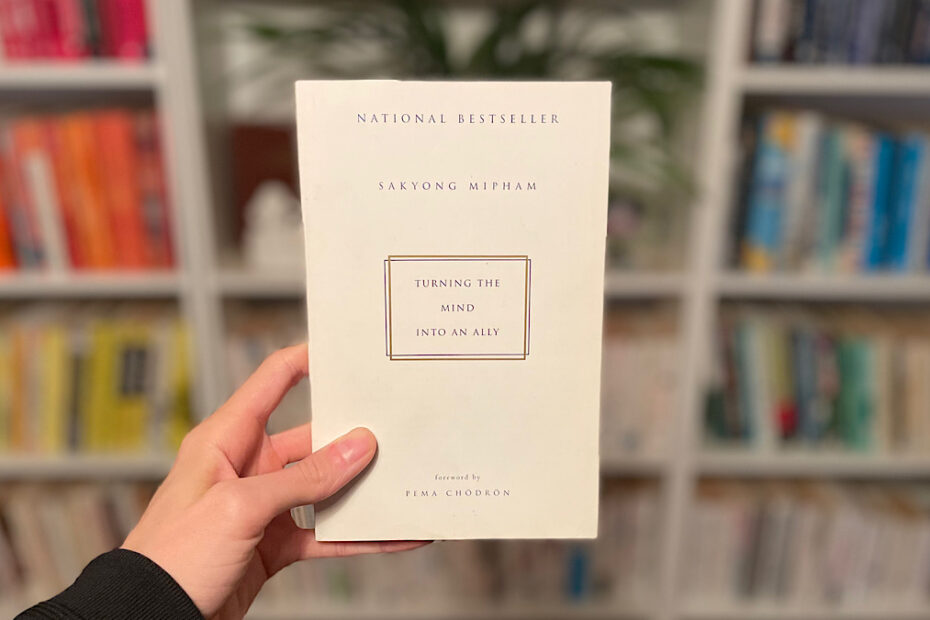“I have lived with several Zen masters—all of them cats. Even ducks have taught me important spiritual lessons. Just watching them is a meditation. How peacefully they float along, at ease with themselves, totally present in the Now, dignified and perfect as only a mindless creature can be. Occasionally, however, two ducks will get into a fight—sometimes for no apparent reason, or because one duck has strayed into another’s private space. The fight usually lasts only for a few seconds, and then the ducks separate, swim off in opposite directions, and vigorously flap their wings a few times. They then continue to swim on peacefully as if the fight had never happened. When I observed that for the first time, I suddenly realized that by flapping their wings they were releasing surplus energy, thus preventing it from becoming trapped in their body and turning into negativity. This is natural wisdom, and it is easy for them because they do not have a mind that keeps the past alive unnecessarily and then builds an identity around it.”
Eckhart Tolle, The Power of Now (Page 190)
Ryan Holiday Quote on How Being Present May Be The Hardest Thing In The World
“Being present demands all of us. It’s not nothing. It may be the hardest thing in the world.”
Ryan Holiday, Stillness is the Key (Page 25)
Beyond the Quote (138/365)
If you’ve ever tried to meditate, then you know how hard it is to be completely present for even a moment of time. Our brains are like monkeys diagnosed with ADD who just drank Red Bulls after taking a long nap—they’re out of control. We’re constantly wandering to different trains of thought, replaying past situations, simulating future situations, and thinking about seemingly random and arbitrary things like monkeys and Red Bull and squirrels.
Read More »Ryan Holiday Quote on How Being Present May Be The Hardest Thing In The World47 Ryan Holiday Quotes from Stillness is the Key To Help You Reclaim Your Full Power
Excerpt: Stillness is the antidote to the overwhelmed, modern mind. These quotes from Stillness is the Key will help you reclaim your full power.
Read More »47 Ryan Holiday Quotes from Stillness is the Key To Help You Reclaim Your Full Power
13 Pico Iyer Quotes from The Art of Stillness to Inspire Your Next Trip to… Nowhere?
Excerpt: A trip to… Nowhere? Who would want to go there? According to Pico Iyer, we all should. Read our quotes from The Art of Stillness for more!
Read More »13 Pico Iyer Quotes from The Art of Stillness to Inspire Your Next Trip to… Nowhere?
Pico Iyer Quote on Rethinking Travel and Exploring ‘Nowhere’
“In an age of speed, I began to think, nothing could be more invigorating that going slow. In an age of distraction, nothing can feel more luxurious than paying attention. And in an age of constant movement, nothing is more urgent than sitting still. You can go on vacation to Hawaii or New Orleans three months from now, and you’ll have a tremendous time, I’m sure. But if you want to come back feeling new – alive and full of fresh hope and in love with the world – I think the place to visit may be Nowhere.”
Pico Iyer, The Art of Stillness
Beyond the Quote (101/365)
In his book, The Art of Stillness, Pico Iyer writes about an unconventional approach to adventure that involves, not traveling to New Orleans or Hawaii, but to “Nowhere.” And yes, that’s exactly what he means. Rather than taking the time to venture off to far and distant lands, he makes an argument for the opposite—adventuring to nowhere in particular and taking that time to turn inward. This idea may not be what people want to hear—after all, who would want to give up the idea of going to Hawaii… to go Nowhere? But, when you look a little closer at the dynamics of far and distant travel, the notion of “Nowhere” may begin to make more sense.
Read More »Pico Iyer Quote on Rethinking Travel and Exploring ‘Nowhere’“Stillness is what aims the archer’s arrow. It inspires new ideas. It sharpens perspective and illuminates connections. It slows the ball down so that we might hit it. It generates a vision, helps us resist the passions of the mob, makes space for gratitude and wonder. Stillness allows us to persevere. To succeed. It is the key that unlocks the insights of genius, and allows us regular folks to understand them.” ~ Ryan Holiday, via Stillness is the Key (Page 2)
Stillness Is The Key [Book]
Buy from Amazon! Listen on Audible!
Not enough time to read/listen to the whole book? Check out the 18 minute Blinkist version of Stillness Is The Key and get the key insights here for free.
Post(s) Inspired by this Book:
- 47 Deep and Insightful Ryan Holiday Quotes from Stillness is the Key
- Herbert Simon Quote on Attention and How Eyes Communicate Priority (Beyond the Quote 280/365)
- Ryan Holiday Quote on How Being Present May Be The Hardest Thing In The World (Beyond the Quote 138/365)
- Ryan Holiday Quote on Leisure and Recharging Constructively (Beyond the Quote (120/365)
- Epicurus Quote on What The Wise Will Accomplish in Their Life (Beyond the Quote 119/365)
- Anne Frank Quote on Reflection and Doing Better Each Day (Beyond the Quote 104/365)
- Epictetus Quote on Prioritizing What’s Important (Beyond the Quote 100/365)
- Ryan Holiday Quote on Cultivating Mental Stillness To Succeed In Life (Beyond the Quote 97/365)
Zen Parable on Grudges and Letting Things Go
Excerpt: The following is a short story about a monk who carried a wealthy woman across muddy water. What he says to his upset disciple may shock you.
Read More »Zen Parable on Grudges and Letting Things Go
Joseph Jaworski Quote on Beautiful Settings and How They Can Drive You Out Of Yourself
“Part of the magic of the experience lay in the sheer beauty of the setting: the breathtaking sight of the high mountains, the sweep of the sky, the panorama of the great valley. The beauty drives you out of the self for a moment – so that for this time, the self is not.”
Joseph Jaworski, Synchronicity
Beyond the Quote (55/365)
This is (at least in strong part) why we are so drawn to beautiful destinations. The sheer beauty of the settings that we travel to pull us out of ourselves—and for that time, the self is not. It’s an incredible escape that is so cherished because our “monkey minds” drive us crazy. I’m sure you might be able to relate. You know the feeling of being unsettled, restless, confused, indecisive? That’s the monkey mind. It’s our inner critic and the part of our mind that is most connected to the ego. The monkey mind insists on being heard, is relentlessly talkative, is constantly pointing to all of our flaws and mistakes, and contends to keep us distracted from doing any kind of deep work all of the time. It’s exhausting and it’s what makes us want a vacation so damn bad.
Read More »Joseph Jaworski Quote on Beautiful Settings and How They Can Drive You Out Of Yourself“All my attempts to control things should be abandoned, and I should just accept the ever changing, ever flowing nature of my life as a river. It turns out that this model can bring me peace no matter where I am, no matter what’s happening. If plans get disrupted, my day gets interrupted by a sudden crisis, information starts coming at me from everywhere, the pace of events starts quickening… I just picture myself as a river, with all of this stuff flowing through me. I don’t try to hold it, control it, freeze it, but I embrace the flow. I smile, I breathe, and I focus on one thing. Then the next. Not holding tightly to any of them, or wanting the river to be any certain way.” ~ Leo Babauta, Essential Zen Habits (Page 120)
Essential Zen Habits: Mastering the Art of Change, Briefly [Book]
Buy from Amazon! Not on Audible…
Not enough time to read entire books? Check out Blinkist and get the key insights from popular nonfiction books in a fraction of the time. ‘Busy’ isn’t an excuse.
Post(s) Inspired by this Book:
- 16 Leo Babauta Quotes from Essential Zen Habits and How To Master the Art of Change
- Leo Babauta Quote on Expectations and Our Attachment To Ideals (Beyond the Quote 175/365)
- Pema Chodron Quote on Suffering and What We Should Do To Alleviate It (Beyond the Quote 59/365)
- Leo Babauta Quote on Using Mistakes As Feedback (Beyond the Quote 39/365)
- Leo Babauta Quote on How Self-Reflection Changed His Life (Beyond the Quote 37/365)
Mark Divine Quote on The Art Of Positive Thinking
“The art of positive self-talk is simply paying attention to your inner dialogue and directing it toward positive, performance-based language. Most people don’t take the time to sit back and witness their own thoughts, which is an essential step toward realizing that our thoughts are not who we are. They don’t control us. They’re just thoughts. The only power they have is what we give them—what we feed them. Once you create that mental distance between you and your thoughts, you can start to tame and manage them.”
Mark Divine, The Way of the Seal
Beyond the Quote (28/365)
The difference between false-positivity and performance-based positivity is in the types of actions each inspire you to take. In the first, you put a happy face on, you mask your emotions, and you distract yourself from the real problems with positive thinking—it’s a diversion and is nothing more than an avoidance strategy that leads to inaction. In the second, positivity is looked at as a strategy that can be deployed and used to best deal with tough situations or emotions that are at hand. Because if we’re going to deal with the situation(s) regardless (given that you’re not going to bury your head in the sand) we might as well do it from a place where we are mentally at our best.
Read More »Mark Divine Quote on The Art Of Positive Thinking20 Practical and Timely Sakyong Mipham Quotes on How To Turn the Mind Into An Ally
Excerpt: Read our 20 Sakyong Mipham Quotes from Turning the Mind Into An Ally and take control of your wandering, cycling, distracted mind… today!
Read More »20 Practical and Timely Sakyong Mipham Quotes on How To Turn the Mind Into An Ally
“Generosity, discipline, patience, exertion, meditation, and wisdom keep turning our mind to enlightenment like a flower seeking sunlight. This brings genuine delight. The more awake we are, the more connected we feel with other sentient beings. The more awake we are, the more we want to help others achieve the same freedom.” ~ Sakyong Mipham, Turning the Mind Into An Ally (Page 210)
“To meet our basic goodness, we meditate. Through peaceful abiding, we learn to rest fearlessly in our natural state. We see what an enlightened being sees: basic goodness is the ground of being, the nature of everything; it’s an indestructible continuum, a diamond hologram with infinite facets. Through contemplation we discover that, like the reflection of a jewel in the sunlight, it is empty. In continuing to contemplate, we see that this emptiness is vibrant and dynamic—a playful display of thoughts, emotions, and perceptions. This is luminosity.” ~ Sakyong Mipham, Turning the Mind Into An Ally (Page 198)
“Contemplating impermanence can be a liberating experience, one that brings both sobriety and joy. In essence, we become less attached. We realize we can’t really have anything. We have money and then it’s gone; we have sadness and then it’s gone. No matter how we want to cling to our loved ones, by nature every relationship is a meeting and parting. This doesn’t mean we have less love. It means we have less fixation, less pain. It means we have more freedom and appreciation, because we can relax into the ebb and flow of life.” ~ Sakyong Mipham, Turning the Mind Into An Ally (Page 150)
“The point of awareness—and the point of meditation, for that matter—is to know what’s happening. We have to be awake. Otherwise we fall into lethargy, which is one step away from sleep. Without awareness, meditation will lead nowhere. In the first stages of peaceful abiding, awareness acts as a spy who watches us meditate, alerting mindfulness to bring us back to the breath when we stray. For a while it might be clumsy and intrusive, because as beginners we need to be watching constantly. But as we practice, awareness continues to develop. The mind becomes more stable, and our ability to know what’s happening becomes stronger. Awareness becomes the sheriff who can sense that our mind is about to become distracted and remedy the situation before it even occurs. We don’t see the sheriff running around everywhere; we just know he’s there. Because we have more confidence, awareness no longer feels intrusive.” ~ Sakyong Mipham, Turning the Mind Into An Ally (Page 107)
Turning The Mind Into An Ally [Book]
Buy from Amazon! Listen on Audible!
Not enough time to read entire books? Check out Blinkist and get the key insights from popular nonfiction books in a fraction of the time. ‘Busy’ isn’t an excuse.
Post(s) Inspired by this Book:
“Are you resisting your here and now? Some people would always rather be somewhere else. Their ‘here’ is never good enough. Through self-observation, find out if that is the case in your life. Wherever you are, be there totally. If you find your here and now intolerable and it makes you unhappy, you have three options: remove yourself from the situation, change it, or accept it totally. If you want to take responsibility for your life, you must choose one of those three options, and you must choose now. Then accept the consequences. No excuses. No negativity. No psychic pollution. Keep your inner space clear.” ~ Eckhart Tolle, The Power of Now (Page 82)
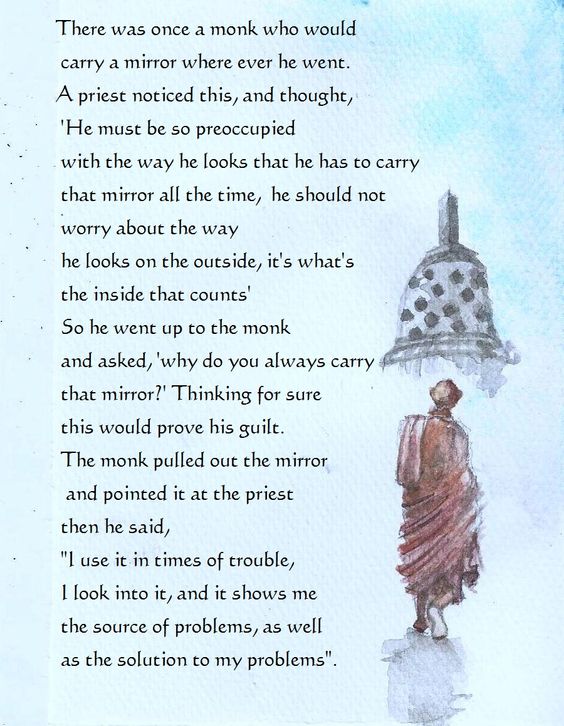
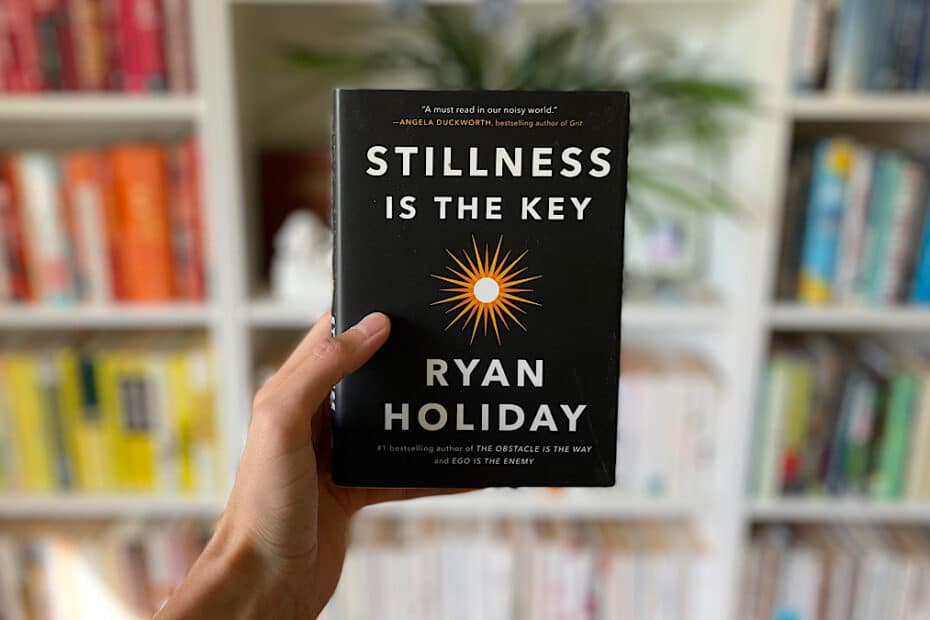
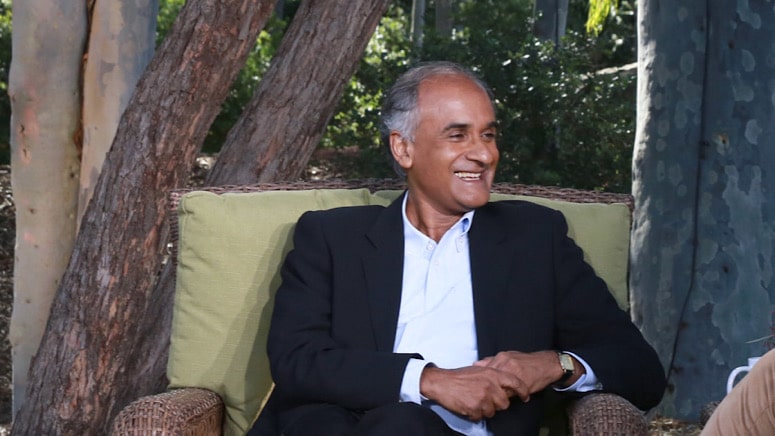
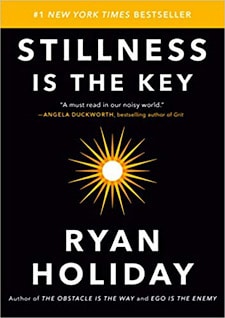
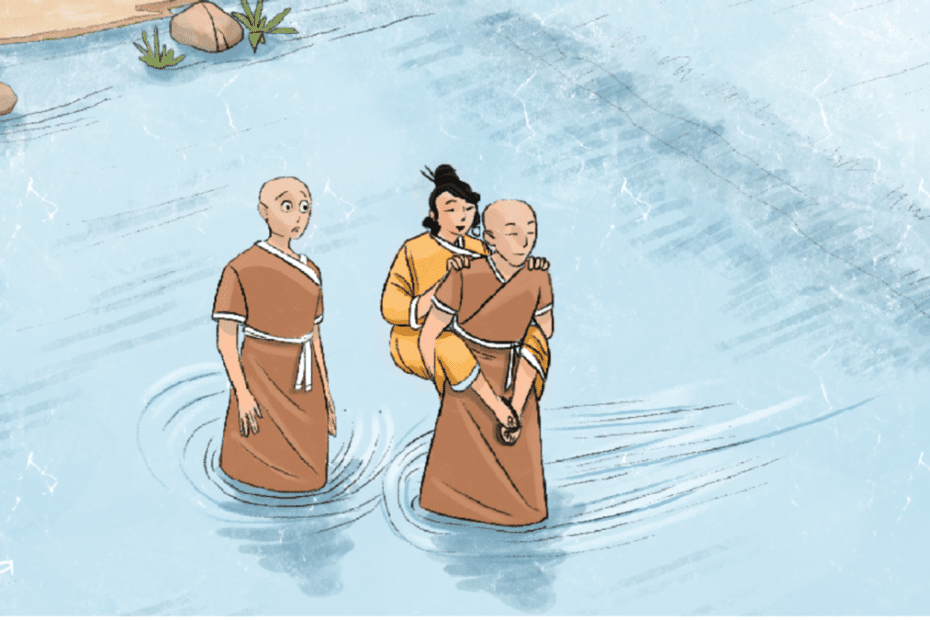
![Essential Zen Habits: Mastering the Art of Change, Briefly by Leo Babauta [Book] Essential Zen Habits: Mastering the Art of Change, Briefly by Leo Babauta [Book]](https://www.movemequotes.com/wp-content/uploads/2020/02/IMG_4400.jpg)
